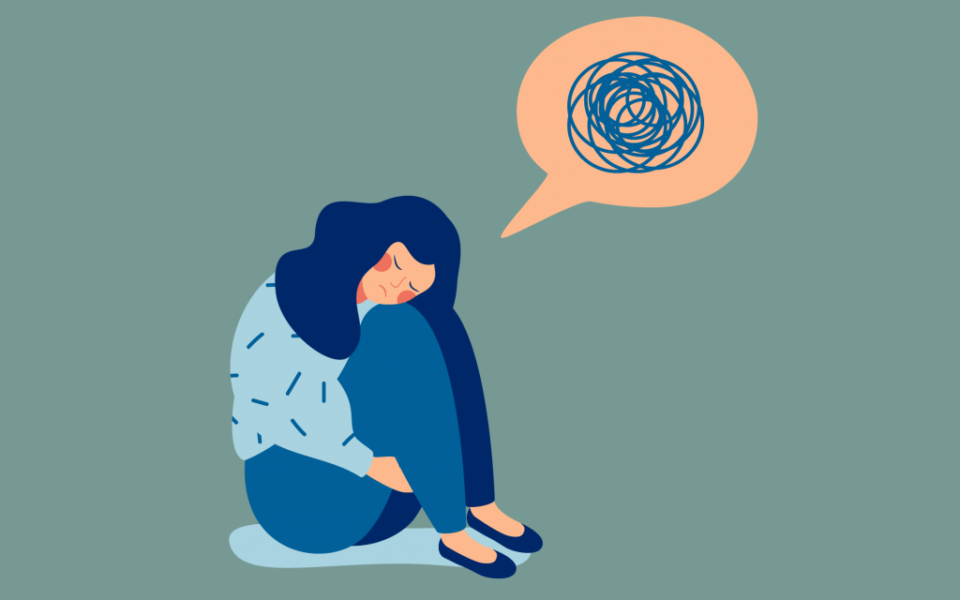Stress & anxiety are normal emotions that everyone experiences occasionally, which is fine. These are your brain’s way of alerting and reacting to potential danger. However, when you feel this way constantly, or you’re overwhelmed by feelings of stress & anxiety, you may have an anxiety disorder. This can make you avoid your daily activities and responsibilities. Fortunately, with treatment, you can learn how to manage these feelings.
What are the different types of anxiety disorders?
Several different types of mental health disorders exist. You’ll want to know what these are so you can see if you’re being affected by any of them. Of course, you don’t want to diagnose yourself, but you can share your concerns with your doctor. They include:
- Generalized anxiety disorder: With this disorder, you’ll feel a large amount of unrealistic worry or tension for no real reason.
- Panic disorder: Here, you’ll experience sudden, intense feelings of fear that bring about a panic attack, which is characterized by feelings of sweating, chest pain, palpitations, or choking – almost like you’re having a heart attack.
- Social phobias: This type of anxiety disorder is characterized by being excessively self-conscious about daily social interactions, thus causing you to experience overwhelming feelings of stress & anxiety near Clearwater.
- Separation anxiety: It isn’t just little kids near Clearwater who become scared, fearful (as if something bad will happen), or anxious when a loved one leaves. These feelings can happen to anyone.
- Selective mutism: With this type of stress & anxiety, a person of any age will find themselves unable to speak while out in public near Clearwater.
Anxiety Disorder Symptoms
Each disorder is characterized differently. However, there are some characteristics that all of them share in common. These include:
- Excessive fear or worry
- Difficulty breathing
- Sleep disturbances
- Inability to concentrate
How are anxiety disorders diagnosed?
When you’re showing symptoms of one of these disorders, your doctor will discuss things with you, such as your medical history. They may also want to run certain tests on you to ensure that you aren’t suffering from any other health conditions. However, it’s important to understand that there aren’t any lab tests near Clearwater that can be specifically used to diagnose these disorders.
If your doctor doesn’t find any physical cause for the way you’re feeling, they’ll refer you to a mental health specialist. They’ll talk to you about how you’re feeling and possibly even use some diagnostic tools that will help in their diagnosis. These include questions like how long you’ve been experiencing stress & anxiety and how it affects your ability to enjoy or complete things in your daily life.
How are they treated?
If you struggle with this disorder, you should realize that there is hope. Some of the most common treatments near Clearwater include:
- Medication: There are several treatment modalities available here. Your doctor or psychiatrist will help you understand the pros and cons of each of them.
- Psychotherapy (a.k.a. talk therapy): In this form of counseling, a trained mental health specialist will teach you how your emotions affect your behaviors. They do this by listening as you talk to them about what’s going on and then suggesting new ways of understanding and managing your thoughts and feelings.
- Cognitive behavioral therapy (CBT): This is the most common type of psychotherapy. Herein, you’ll learn to turn negative thoughts that cause you to panic into positive thoughts and behaviors.
Where can you get help for stress & anxiety?
Advantage Mental Health Center near Clearwater, FL, is a leading mental health center that offers a wide range of services to individuals. With a team of highly skilled and compassionate professionals, they’re dedicated to providing personalized care and support to help individuals overcome their mental health challenges. Whether you’re seeking therapy, medication management, or specialized treatment programs, they’re committed to helping you achieve optimal mental well-being.

